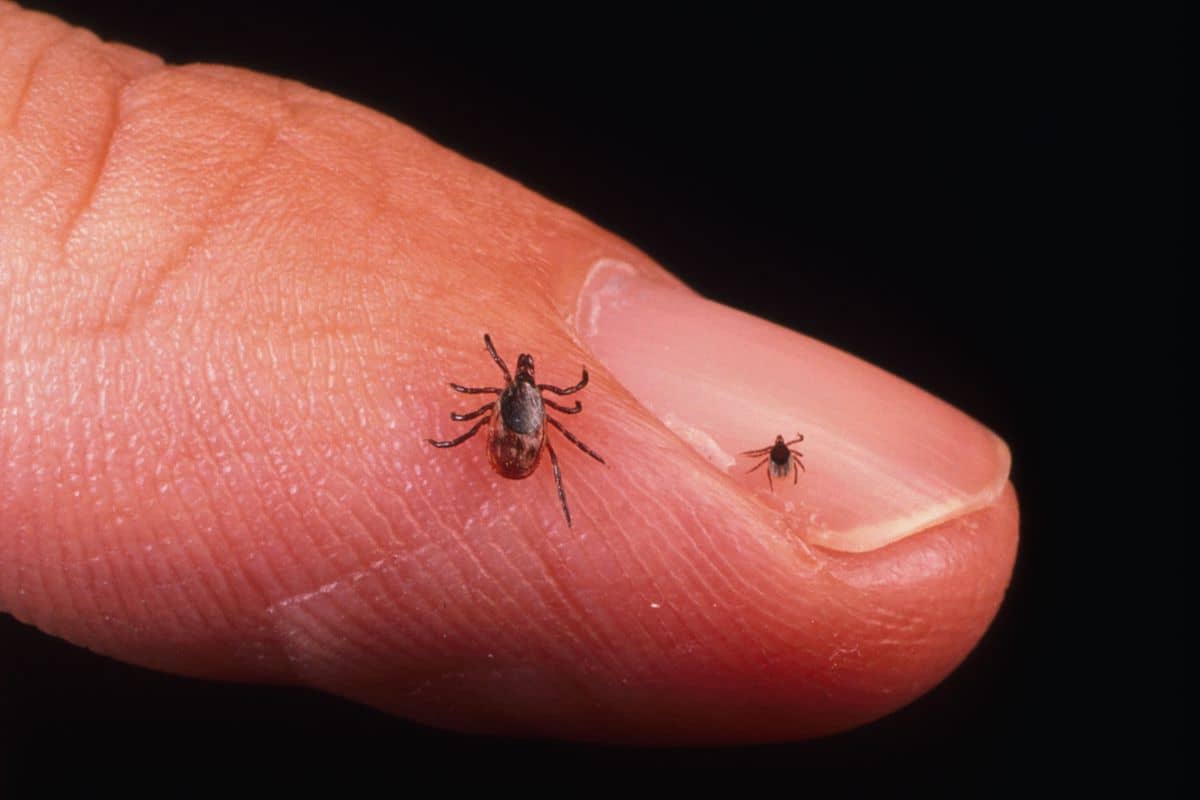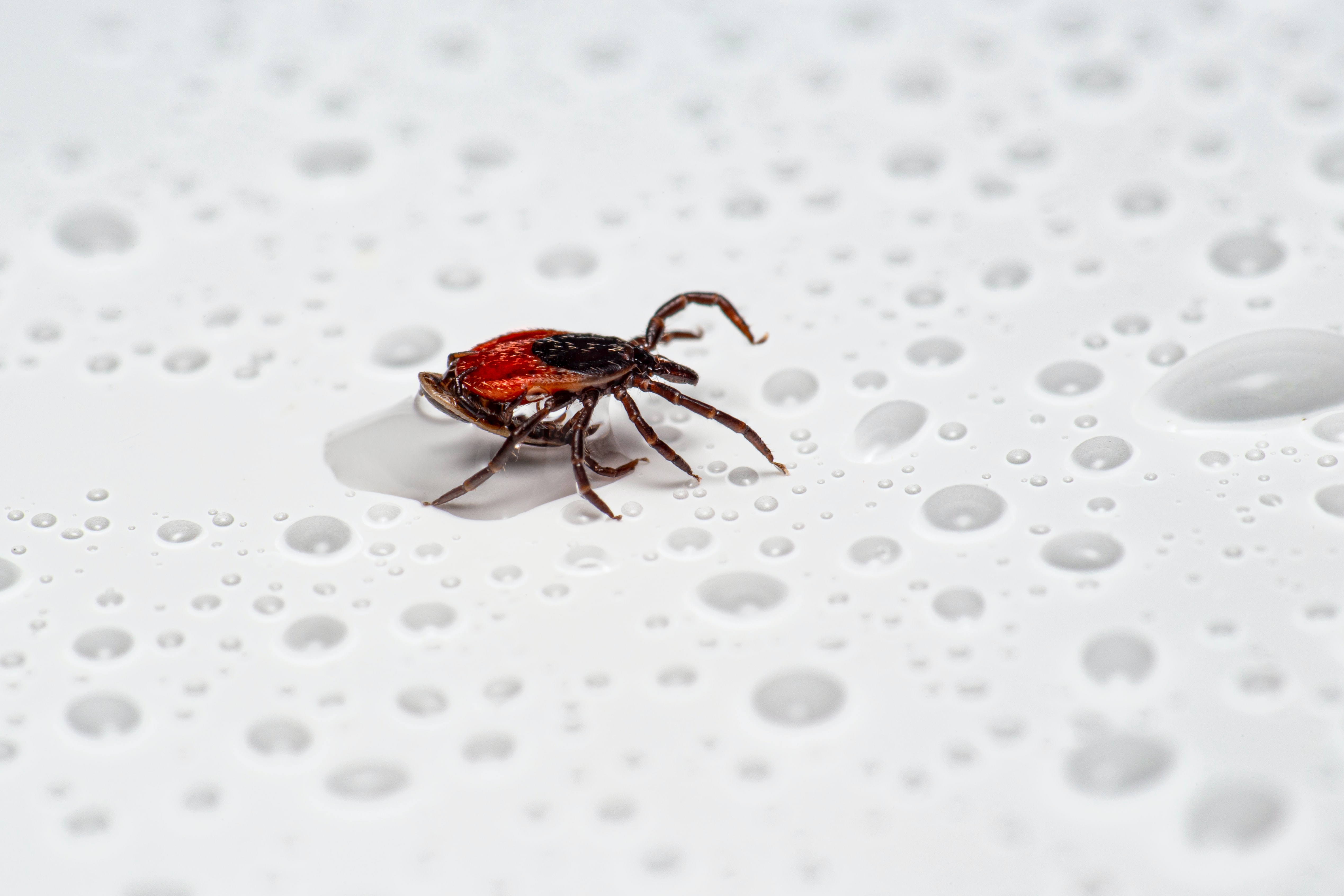Ticks can become a true disaster, especially during the so-called tick season!
These tiny yet rather harmful bugs often transmit dangerous diseases which makes them unwelcome guests in our yards and gardens.
However, when it comes to fighting a tick invasion, many people stumble upon the same issue: do ticks drown in water? Today we will try to figure out how these pests react to water and whether drowning ticks is possible at all.
Can Ticks Drown In Water?
There has been a belief for quite a while that, when being submerged under the water, ticks will die at once. In fact, there is just a part of the truth in this statement.
If you submerge this critter under the water, any tick will indeed die but it will take several days which is a bit too long to wait.
Can ticks survive in water?
Well, basically, they can. See, if you have a tick on your skin, and you take a shower or sit in a bathtub, go to a swimming pool, or bathe in the sea, this tiny pest will survive just fine.
Even chlorinated or salted water is not a threat for them. The concentration of these elements on oceans and pools is not enough to cause any harm to these creatures.
Ticks are not that fragile and vulnerable as you might think of them, so placing them into water will not instantly kill them (unfortunately for us, people).
Fact Check – Tick Bite: What to Do

Can ticks live in water?
Luckily, they can’t. These blood-sucking parasites like shady, grassy, and leafy areas, thick bushes, etc, especially those that are located along the forest paths.
Tallgrass is another favorite spot for them to live in. These are the best places for the critters to wait for prey and feed on its blood.
How Do Ticks Breathe?
Ticks belong to arthropods which means they breathe through special breathing holes that are located on their bodies.
From those holes, the air they breathe in is then transported through their tiny bodies by the trachea.
How come they don’t drown then if we drop them into the water? With those holes all over the body, any tick would have to drown immediately!
This is a reasonable question that is often asked when people learn ticks can stay alive in the water. What makes them survive?
Well, first of all, if you take a closer look at the picture of any tick, you will see that their bodies are not built for swimming.

Their corpus is bigger than their legs, and besides, the latter ones are not designed for moving in or under the water.
But the major reason why these pests remain alive is their breathing holes! See, they can close up when a bug ends up in the water. But moreover, there is one more trick these creatures have that prevents them from drowning.
Each tick has hairs around its breathing holes. These hairs are able to hold a tiny bubble of oxygen when a critter is submerged underwater.
Like that, a bug is provided with the necessary amount of oxygen to breathe. But this is not all!
This air bubble can even absorb extra oxygen from the water! This is why ticks are known for having quite a low respiration rate.
They only need to breathe a few times per hour.
All this makes ticks rather tough beasts to kill by simply submerging them underwater, especially counting on their size!
This is why the best way to get rid of them is to make use of either ethanol or some rubbing alcohol.
Most Popular Myths And Questions About Ticks
Except for this water issue, there are several other beliefs and rumors about ticks that are better to be clarified now. When you possess the true information, especially about such harmful critters as ticks, it can literally save your life! So, here we go.
Can ticks swim?
No, fortunately, these pests are not created for swimming.
However, it does not mean they will fall off you the second they end up in the water. If you submerge a tick that is attached to your skin under the water, it will keep holding on to you. How long can ticks live under the water? Well, they say that some of them are able to stay submerged for two or even three days!
Do male ticks bite?
That’s another frequent question that is asked. Most of all are used to believing that only female critters are dangerous and can bite. And in fact, this is true.
Female ticks cause the most trouble to people since it’s them who bite us and thus transmit diseases. Male bugs usually die after mating, this is why if someone was bitten by a tick, that was most likely a female one.

Do ticks live in water?
Well, this is a myth that must be debunked! These critters are not created for such living conditions. On the contrary, they prefer grassy, leafy areas that are shady.
So now you can see that these tiny blood lovers are way less fragile and more durable than we might think of them.
This is why, for destroying ticks in your household, you will need to make quite an effort.
The best solution will be to go for rubbing alcohol or ethanol rather than trying to drown them or get rid of these pests somehow else. As an alternative variant, a pest control service can also be a great solution to say goodbye to a tick invasion forever.
So now you know that ticks can not be drowned that easily unless you are ready to waste a couple of days on that.
In addition, you are now aware of the most widespread myths about these critters, and their explanation.
With all this information, dealing with these bugs will be way less problematic for you next time!
[wp-faq-schema title=”Frequently Asked Questions”]

And in fact, this is true.
Female ticks cause the most trouble to people since it’s them who bite us and thus transmit diseases.
Yes unfortunately you are right(
This may sound a bit weird, but do ticks like water? I heard you can drown them to kill. Is that true or not?
That’s false!
Ticks don’t drown at all! If you want to kill them, you need to call pest control. And no, they definitely don’t like water since it’s not suitable for them to live in (they will simply suffocate in it after a while)
I heard that it’s only female ticks that bite and transmit different bad stuff. But what about males?
Do male ticks feed on blood, too?
Males normally die right after mating, so I don’t think we shall bother about them at all! But you are right, it’s female ticks that cause most of the problems.
Do ticks die in water? Will drowning help to kill them?
Nope, it won’t help. To drown a tick, you will have to keep it underwater for three days or so. I’m not sure any person is ready for such a sacrifice! Better grab some rubbing alcohol – it will destroy the bloodsuckers pretty fast!
I heard that ticks can stay alive in the water for a while. But can ticks breathe underwater? Does anyone know?
If I recall it right, they can kind of breathe underwater due to the breathing holes on their body. But unfortunately, I don’t remember how exactly they did that.